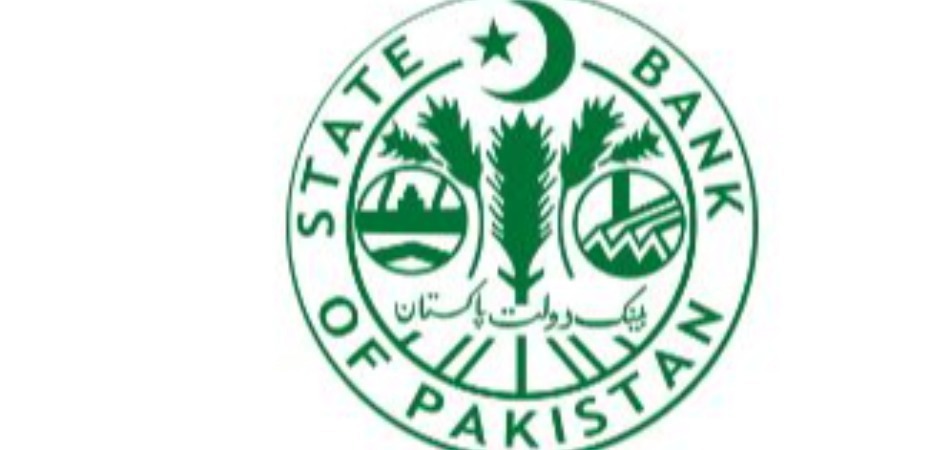Symmetry Group Limited IPO raises concerns with unproven IPs, valuation

By Nilam Bano | August 07, 2023 at 03:33 PM GMT+05:00
August 07, 2023 (MLN): The Pakistan Stock Exchange (PSX) is all set to witness the first Initial Public Offering (IPO) of FY24 via Symmetry Group Limited (SGL) which intends to raise Rs375 million without having any proven Intellectual Properties (IPs) as the company is yet to develop and launch five digital IPs.
Basically, the company will first raise money from the public, then allocate human resources, complete the development of proposed IPs, and then market it. So, the question naturally is: why is Symmetry seeking funds from investors and demanding a premium that exceeds other companies (claimed to be peers) with more developed offerings?
Speaking to Mettis Link News, the CEO of SGL, Syed Sarocsh Ahmed attempted to address this concern by stating that the development of the IPs has been going on for two years, with some currently under testing with Jazz, P&G, and HBL. However, despite an IPO process stretching for months, the company hasn’t given any demo for the minimum viable product — which is a norm even at pre-seed and seed rounds.
Pertaining to the hiring of human resources for the IPs, he clarified that the company is utilizing its existing human resources for the time being but acknowledged the need for hiring specialized personnel for data science in later stages.
The new human resources will be hired for three IPs i.e., Corral, Cartsight, and Mobits, while existing human resources will be utilized for the remaining IPs i.e., Influsense and Survit.
When asked why such and such info is not given in the prospectus, he said the prospectus has limited information as it was submitted in PSX last year later after being updated and approved by SECP in June.
“Investors make their decision to invest their money on the basis of our past performance,” he said. Now in SGL's case, if the IPs are yet to be fully developed and have not been commercialized, how can the company claim to have a basis for investor decision-making through past performance?
Moreover, Mr. Ahmed's assertion that the IPO is solely based on the testing phase of the IPs, where they are not fully developed or marketed, adds to the confusion. Investors are essentially being asked to pay a substantial premium of 325% on the expected future returns of these IPs, which remain largely uncertain.
These IPs are basically software-as-a-service (SaaS) platforms for consumer insights, visualization of Key Performance Indicators, and other critical information to aid businesses in the decision-making process. These IPs will generally have features including Artificial Intelligence Engine, Data Collection, Data Visualization, and Targeted Marketing.
Through the upcoming IPO, the company is planning to raise up to Rs430.27 million through Book Building. The offering comprises a total of up to 101.24mn ordinary shares, which represents 35.49% of the total post-IPO paid-up capital.
Out of the total offering, 88.23mn ordinary shares (30.93% of the post-IPO paid-up capital) will be freshly issued, while 13mn ordinary shares (4.56% of the post-IPO paid-up capital) will be offered for sale (OFS).
In terms of the offer value, the fresh issue will amount to Rs375mn, while the OFS will be Rs55.27mn, making the total offer value Rs430.27mn.
The entire issue will be made available at a floor price of Rs4.25 per share, including a premium of Rs3.25 per share or 325%. This valuation translates to a price-to-earnings (P/E) multiple of 6.38x based on the FY23 earnings. Comparatively, the industry-weighted average P/E multiple stands at 11.48x.
But comparing with existing listed players may be apples to oranges because SGL is raising money to build products from the ground up, instead of growing existing business. Essentially, it’s four pre-seed rounds disguised as a listing.
Such a steep premium raises apprehensions about the company's valuation and the potential risks investors will likely face. The lack of concrete data on past performance and the current status of the IPs in question left investors with limited information to make investment decisions for the upcoming IPO.
“The upcoming IPO of our company, SGL, is structured in two phases, with the initial phase targeting institutional investors and family businesses, known for their thorough research and sharp investment strategies,” he added.
The CEO expressed confidence that the success of this phase will have a cascading effect on the remaining 25% of individual investors.
The primary focus of this IPO lies in the development and monetization of IPs that are complementary to the existing business and will help to expand the service offerings. While the IPs are in various stages of development and testing, Mr. Ahmed noted.
Admitting the inherent business risks associated with such ventures, Mr. Ahmed emphasized that the growth trajectory of SGL extended beyond the IPs being developed. The company is actively nurturing growth through its existing streams. Initiatives are proceeding to establish strategic partnerships in the Asia-Pacific (APAC) and Middle East regions in order to broaden export avenues in the coming years.
In this regard, the CEO highlighted noteworthy insights into the company's export performance. In the year 2023, a notable 23% of the total revenue was credited to exports, and this figure is projected to rise to 34% in FY24. Signifying a persistent commitment to global expansion, SGL seeks to achieve a worthy 50% revenue from exports by FY26.
Rational behind raising money through IPO in question:
As we delve into the numbers provided in the financial model of the company, the company’s expected free cash flow for FY26 is over Rs300mn, nearing the amount it is seeking to raise through IPO. The burning question is, if the company anticipates generating such a lucrative cash flow, what could be the underlying reasons behind its decision to raise a similar amount of money from investors today?
Responding to a query pertaining to raising money through seed funding rather than seeking through IPO, the CEO said that the company is not a startup and in Pakistan, private equity investments do not get successful because there are no true private equity transactions. The major reason is undue interference of investors in the business operations.
He also claimed that VC-based investors invest in products they never invest in service-based industries. Plus, VCs do not encourage to start working on the five products at the same time as their focus is on one product at a time.
If the IPs are in the testing phase, then why is SGL raising Rs205mn for its development?
Breaking down the utilization of Rs375mn, the largest allocation of 55% (Rs205.71mn) will be directed towards the development of IPs. On one side, the CEO says that the IPs are in the testing phase but at the same time the company is seeking to generate the major chunk for IPs development, raising questions what is the status of completed IPs.
Investors and the public alike now find themselves pondering the true status of these IPs and whether they are indeed on the cusp of completion or merely tangled in a web of uncertainty.
Additionally, 12% of the funds (Rs46.2mn) will be utilized to establish a new office, providing the necessary infrastructure for accommodating a growing workforce. Another 11% (Rs42.52mn) will be dedicated to acquiring equipment.
The 10% allocation (Rs38mn) for specialized Human Resources (HR), indicates the company's focus on recruiting skilled professionals when required. The remaining 11% of the funds (Rs42.46mn) will be allocated to marketing and business development efforts.
Company’s valuation and Peer comparison:
Responding to the query of how the company has decided on the premium price of Rs3.25 per share, Mr. Ahmed told Mettis, “Initially we kept the premium at Rs5.5 per share, and at the same time sector’s multiple was 11.48x. However, due to the market conditions, we had to bring it down to Rs3.25 per share with a multiple of 6.38x to make this upcoming listed company attractive for investors.”
In the midst of the IPO prospectus, there arise some perplexing questions regarding the company's valuation and the comparison made with its competitors which include Systems Limited and Octopus. As we delve into the information provided, there seems to be a disconcerting misalignment between the offered premium and the business fundamentals of Symmetry Group Limited.
A striking observation is the exceptionally high premium sought by SGL, surpassing the premiums charged by both Systems Limited (300%) and Octopus (190%) during their respective book-building processes.
This raises skepticism about the justification for such a considerable premium, especially considering that the company offers incomplete IPs with no apparent use case on the export front. One would naturally question why investors are being asked to pay a premium that exceeds companies with more developed offerings.
Furthermore, the peer comparison provided in the prospectus lacks relevance. The inclusion of companies like Systems Limited, Octopus, Netsol, Airlink, AVN, TELE and Airlink, whose business models differ significantly from Symmetry's is adding confusion to the picture.
The information presented in the prospectus, including the peer comparison, can significantly influence investors' perception of potential returns. Thus, the apparent regulatory requirement to provide peer/competitor names should be critically examined.
When we asked the same question to Mr. Ahmed, he said that Systems Limited is not its primary competitor, but SGL competes with them in certain areas such as application development. “But there is a regulatory requirement to mention peer/competitor’s name from the same sector,” he added.
Considering this, the Listing Committee and the Securities Exchange Commission of Pakistan (SECP) need to revise the regulatory mandate for disclosing peer names, as this could potentially lead to misconceptions among investors. Removing the compulsion to provide peer names might be a step in the right direction to prevent unrealistic expectations and misguided investment choices.
These regulators should closely scrutinize the information provided to ensure that investors are not misled by the prospectus especially pertaining to the peer names.
In addition, regulators and the PSX committee must carefully analyze the above-mentioned concerns to make the underwriters and investment advisors responsible.
Given the raised points and concerns, now it is up to the market how it will respond to the biggest IPO of a tech sector to discover the strike price.
Copyright Mettis Link News
Related News
| Name | Price/Vol | %Chg/NChg |
|---|---|---|
| KSE100 | 125,627.31 258.99M |
1.00% 1248.25 |
| ALLSHR | 78,584.71 1,142.41M |
1.16% 904.89 |
| KSE30 | 38,153.79 69.25M |
0.63% 238.06 |
| KMI30 | 184,886.50 91.38M |
0.01% 13.72 |
| KMIALLSHR | 53,763.81 554.57M |
0.54% 290.61 |
| BKTi | 31,921.68 33.15M |
1.78% 557.94 |
| OGTi | 27,773.98 9.65M |
-0.40% -112.21 |
| Symbol | Bid/Ask | High/Low |
|---|
| Name | Last | High/Low | Chg/%Chg |
|---|---|---|---|
| BITCOIN FUTURES | 107,830.00 | 107,860.00 107,555.00 |
-405.00 -0.37% |
| BRENT CRUDE | 66.63 | 67.20 65.92 |
-0.17 -0.25% |
| RICHARDS BAY COAL MONTHLY | 97.00 | 97.00 97.00 |
1.05 1.09% |
| ROTTERDAM COAL MONTHLY | 107.65 | 107.65 105.85 |
1.25 1.17% |
| USD RBD PALM OLEIN | 998.50 | 998.50 998.50 |
0.00 0.00% |
| CRUDE OIL - WTI | 65.00 | 65.02 64.83 |
-0.11 -0.17% |
| SUGAR #11 WORLD | 16.19 | 16.74 16.14 |
-0.52 -3.11% |
Chart of the Day
Latest News
Top 5 things to watch in this week
Pakistan Stock Movers
| Name | Last | Chg/%Chg |
|---|
| Name | Last | Chg/%Chg |
|---|



